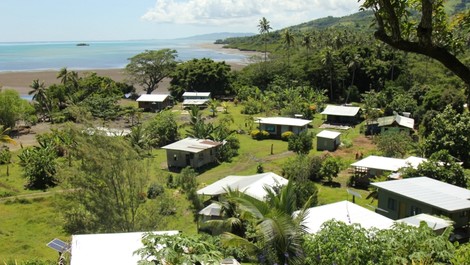Your podcast discovery platform
Curious minds select the most fascinating podcasts from around the world. Discover hand-piqd audio recommendations on your favorite topics.

piqer for: Climate and Environment Boom and bust Global finds
Didem Tali is an award-winning journalist covering international development, gender, displacement and environment issues for English-language media around the world.
Climate Change Moves Fijian Villages
In the village of Vunidogoloa in Fiji, many residents observed climatic changes and the rising of the river levels for some generations. However, since the 1950s, it became an anomaly.
Sailosi Ramatu, head of the village, has lost his house due to these developments.
Today, all that remains of his childhood home is the concrete bathroom foundation and three wooden stumps sticking out of the dark, muddy sand. The beach is just a few metres wide, precariously situated between a grassy elevation leading to the main part of the old village and the bay. "This river was not as wide as this before. It was just there," said Ramatu, gesturing into the distance. "When I was eight, I used to cross this river. Now we have to swim."
In addition to the rising water levels, cyclones also keep destroying the livelihoods of many communities.
Marica Bulimaitoga, 65, lost her house by the beach in a cyclone. She had to relocate to the hills, where it's increasingly difficult for her to keep going to the beach to fish. The beach also had significant ancestral and cultural meaning for Bulimaitoga's community, which they are no longer close to.
In 2015, a Fijian official said the government was looking at possibly relocating as many as 676 villages.
In many parts of the world, climate change is still an abstract concept. However, in small Pacific nations like Fiji, which has recorded a six-millimetre sea level increase each year since 1993, it's already a grim daily reality.
